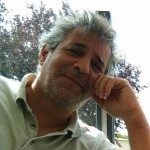Link to Pubmed [PMID] – 24223220
PLoS ONE 2013;8(11):e80190
OBJECTIVE: Vasopressin (AVP) secretion during an osmotic challenge is frequently altered in the immediate post-acute phase of septic shock. We sought to determine if this response is still altered in patients recovering from septic shock.
DESIGN: Prospective interventional study.
SETTING: Intensive care unit (ICU) at Raymond Poincaré and Etampes Hospitals.
PATIENTS: Normonatremic patients at least 5 days post discontinuation of catecholamines given for a septic shock.
INTERVENTION: Osmotic challenge involved infusing 500 mL of hypertonic saline solution (with cumulative amount of sodium not exceeding 24 g) over 120 minutes.
MEASUREMENTS AND MAIN RESULTS: Plasma AVP levels were measured 15 minutes before the infusion and then every 30 minutes for two hours. Non-responders were defined as those with a slope of the relation between AVP and plasma sodium levels less than < 0.5 ng/mEq. Among the 30 included patients, 18 (60%) were non-responders. Blood pressure and plasma sodium and brain natriuretic peptide levels were similar in both responders and non-responders during the course of the test. Critical illness severity, hemodynamic alteration, electrolyte disturbances, treatment and outcome did not differ between the two groups. Responders had more severe gas exchange abnormality. Thirst perception was significantly diminished in non-responders. The osmotic challenge was repeated in 4 non-responders several months after discharge and the abnormal response persisted.
CONCLUSION: More than half of patients recovering from septic shock have an alteration of osmoregulation characterised by a dramatic decrease in vasopressin secretion and thirst perception during osmotic challenge. The mechanisms of this alteration but also of the relationship between haematosis and normal response remain to be elucidated.

